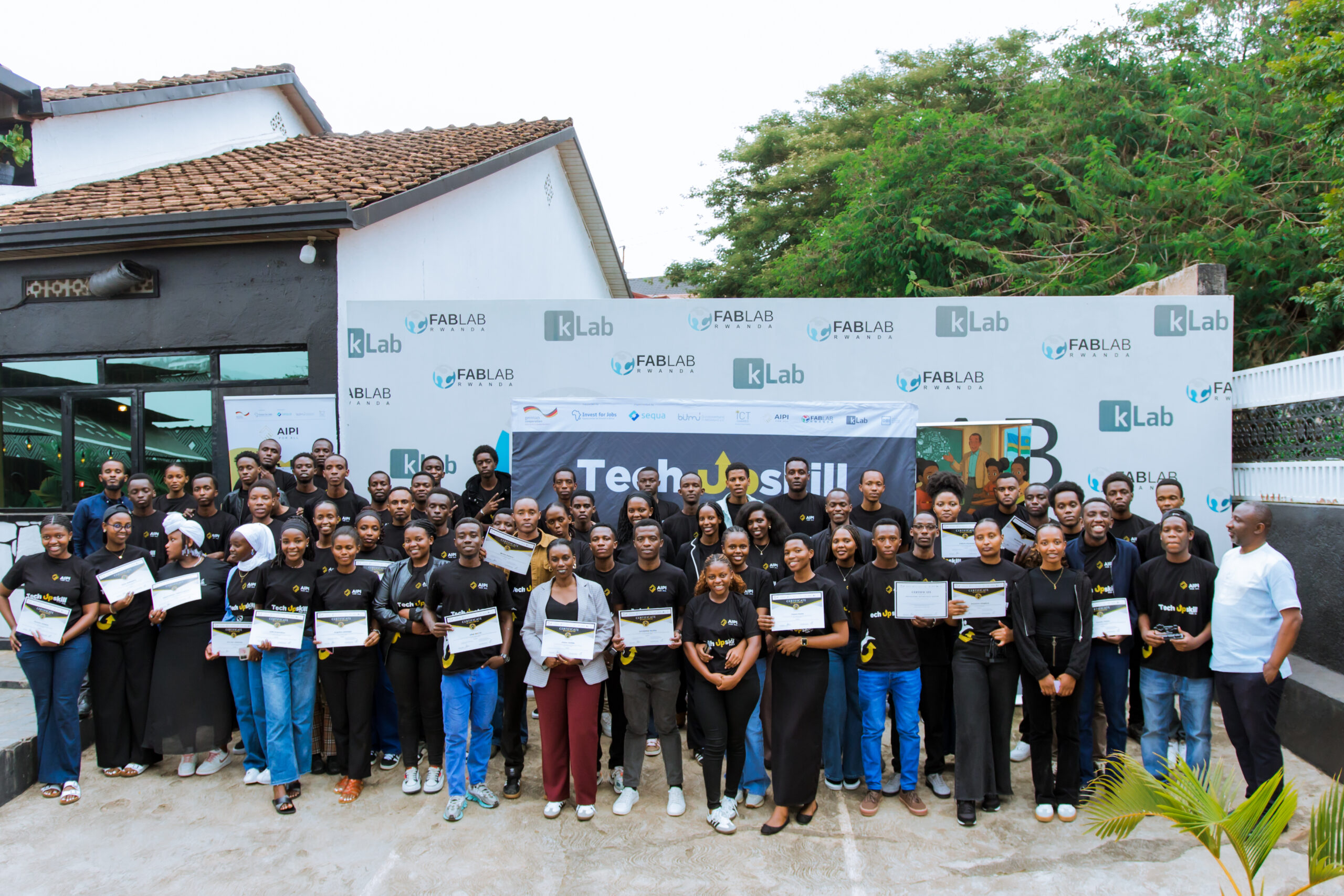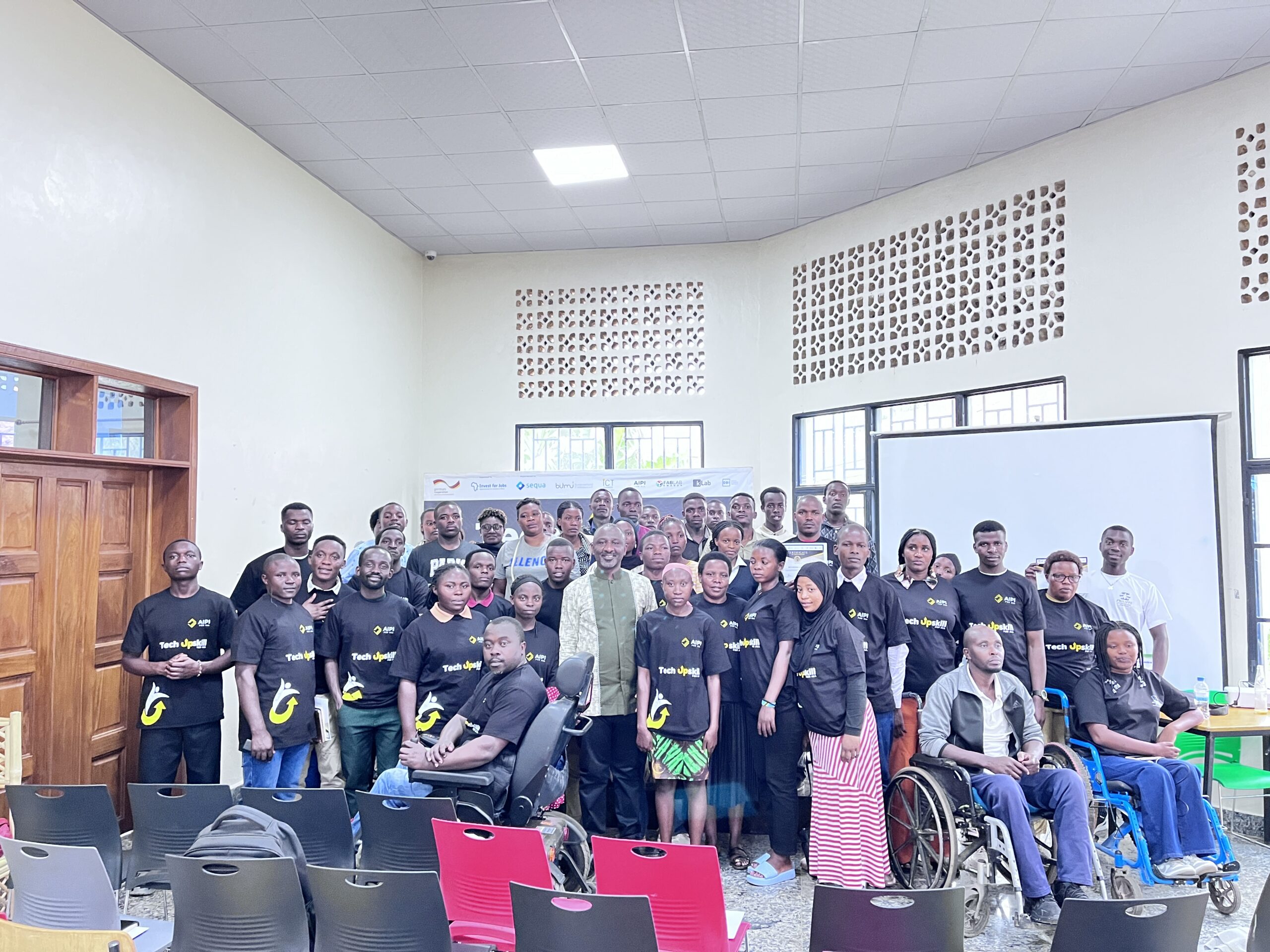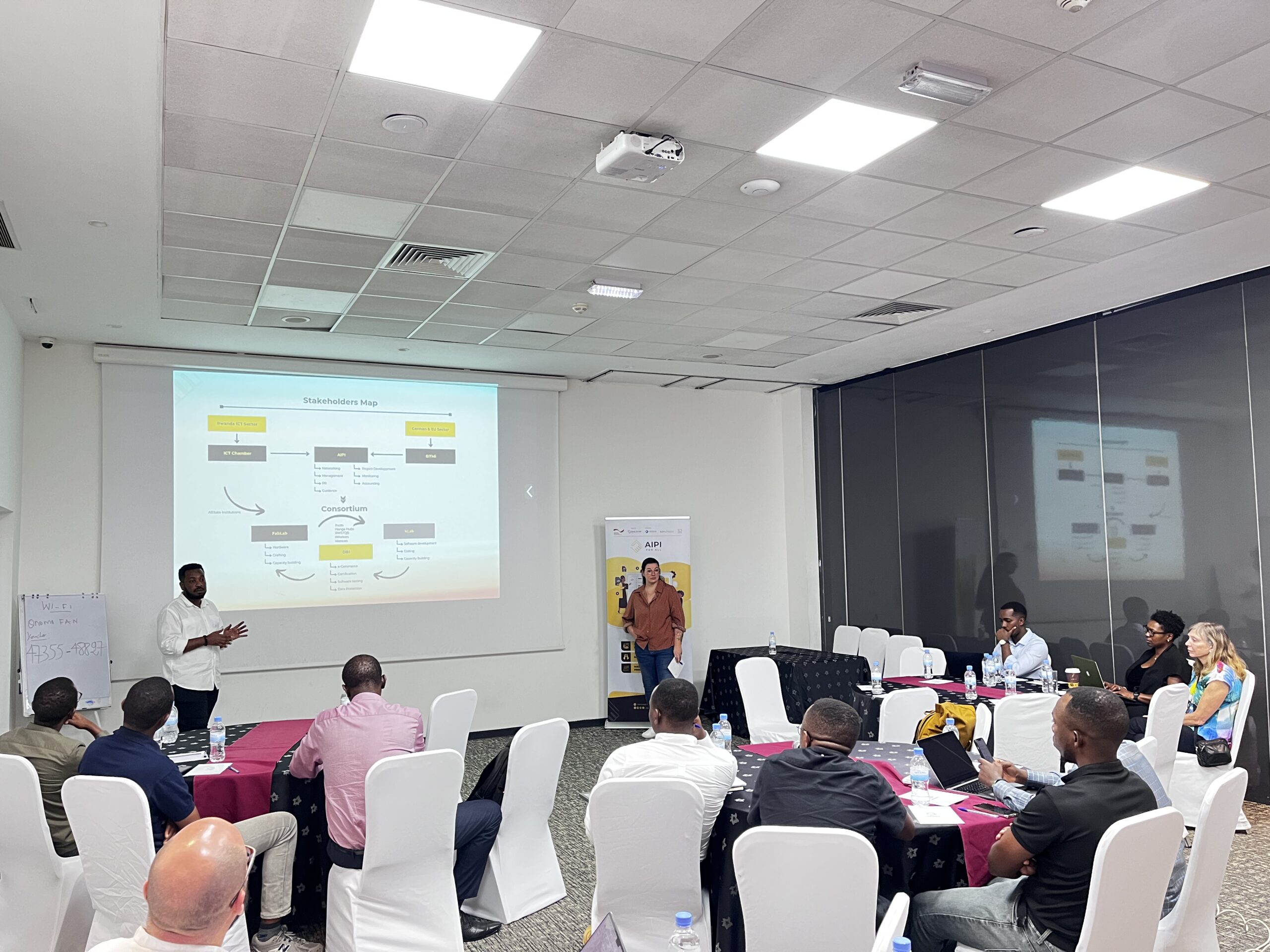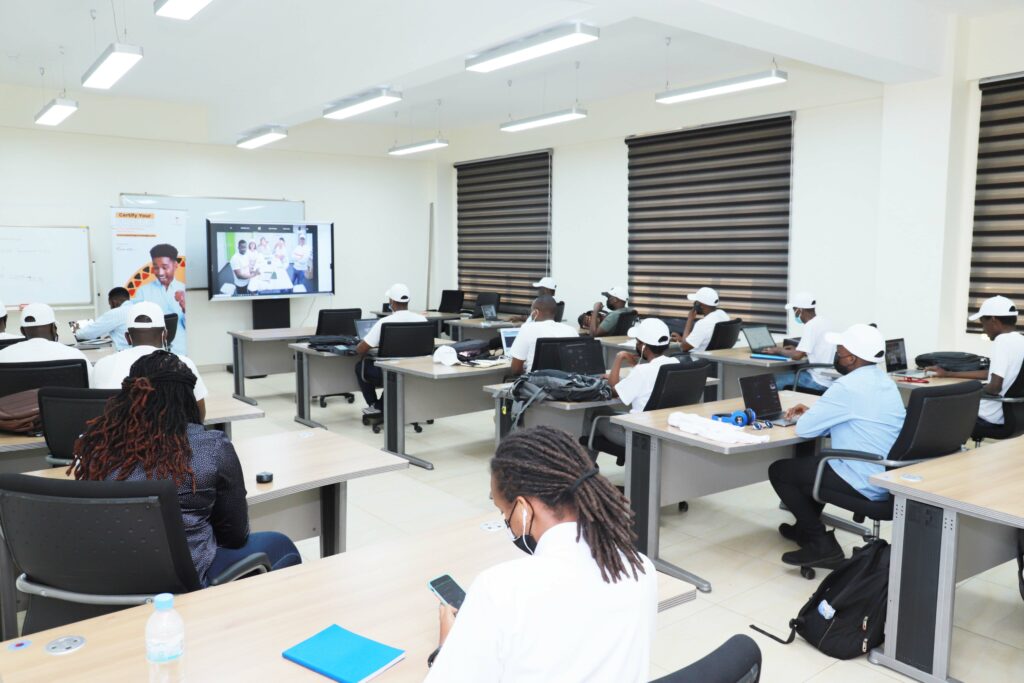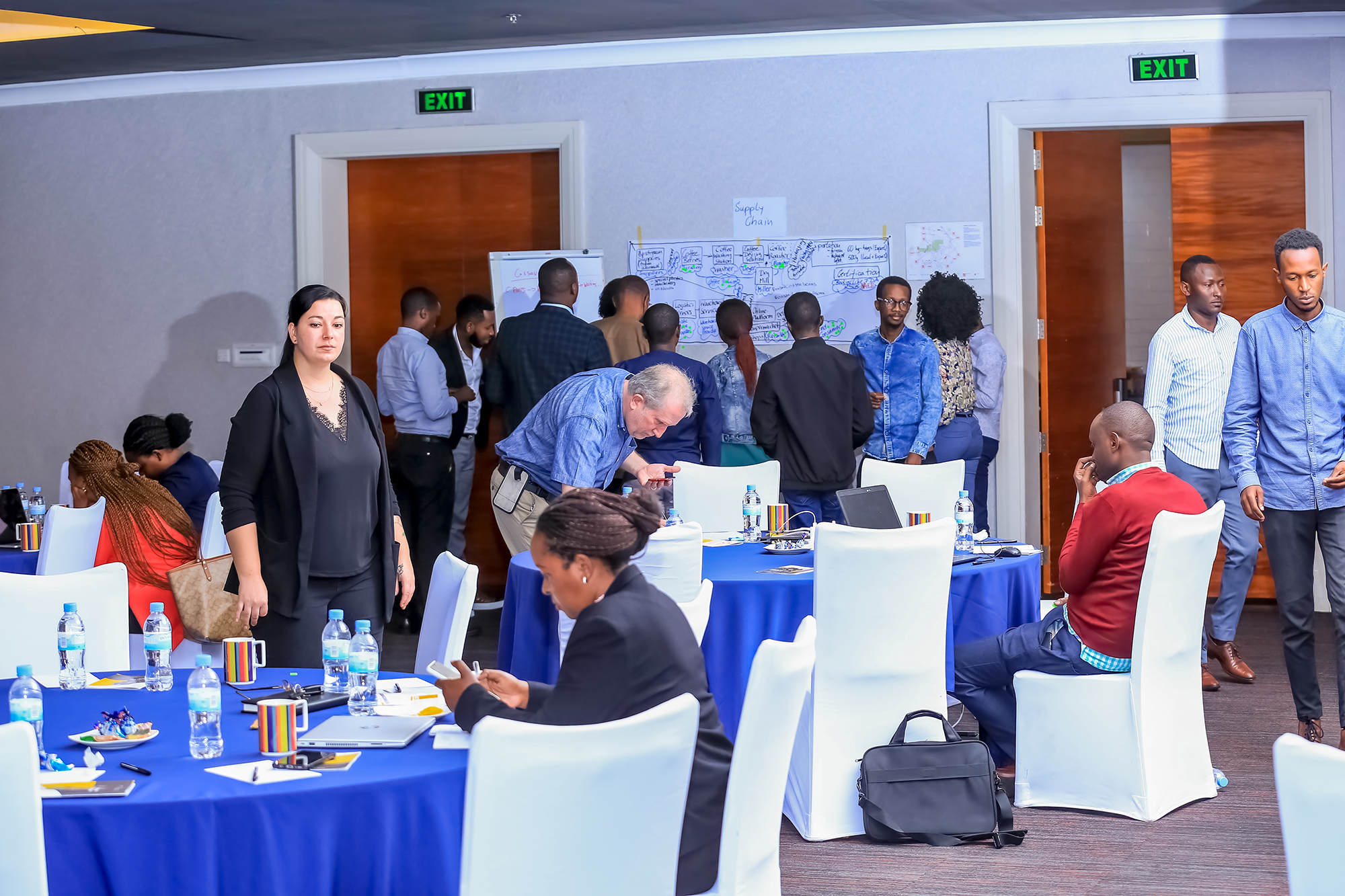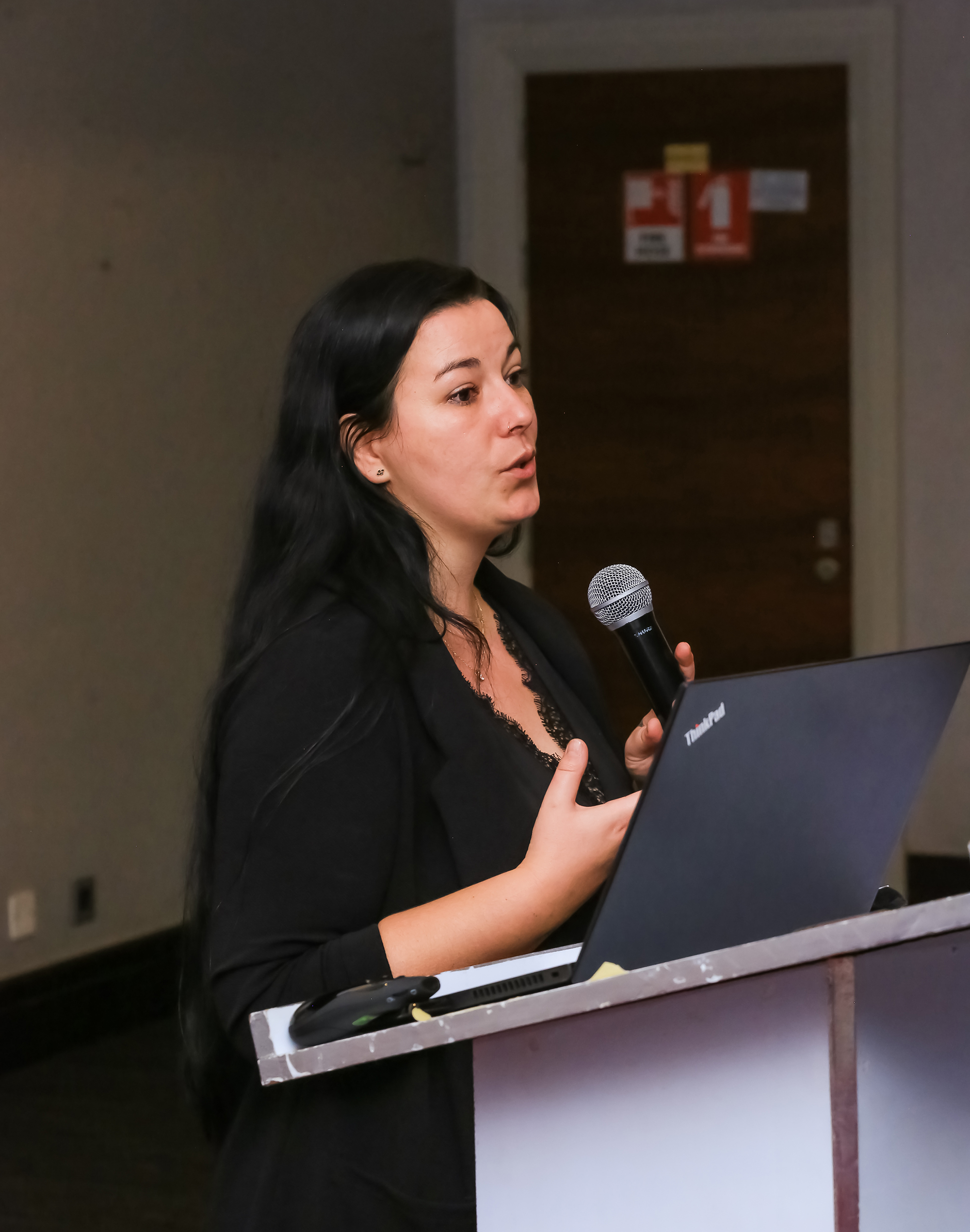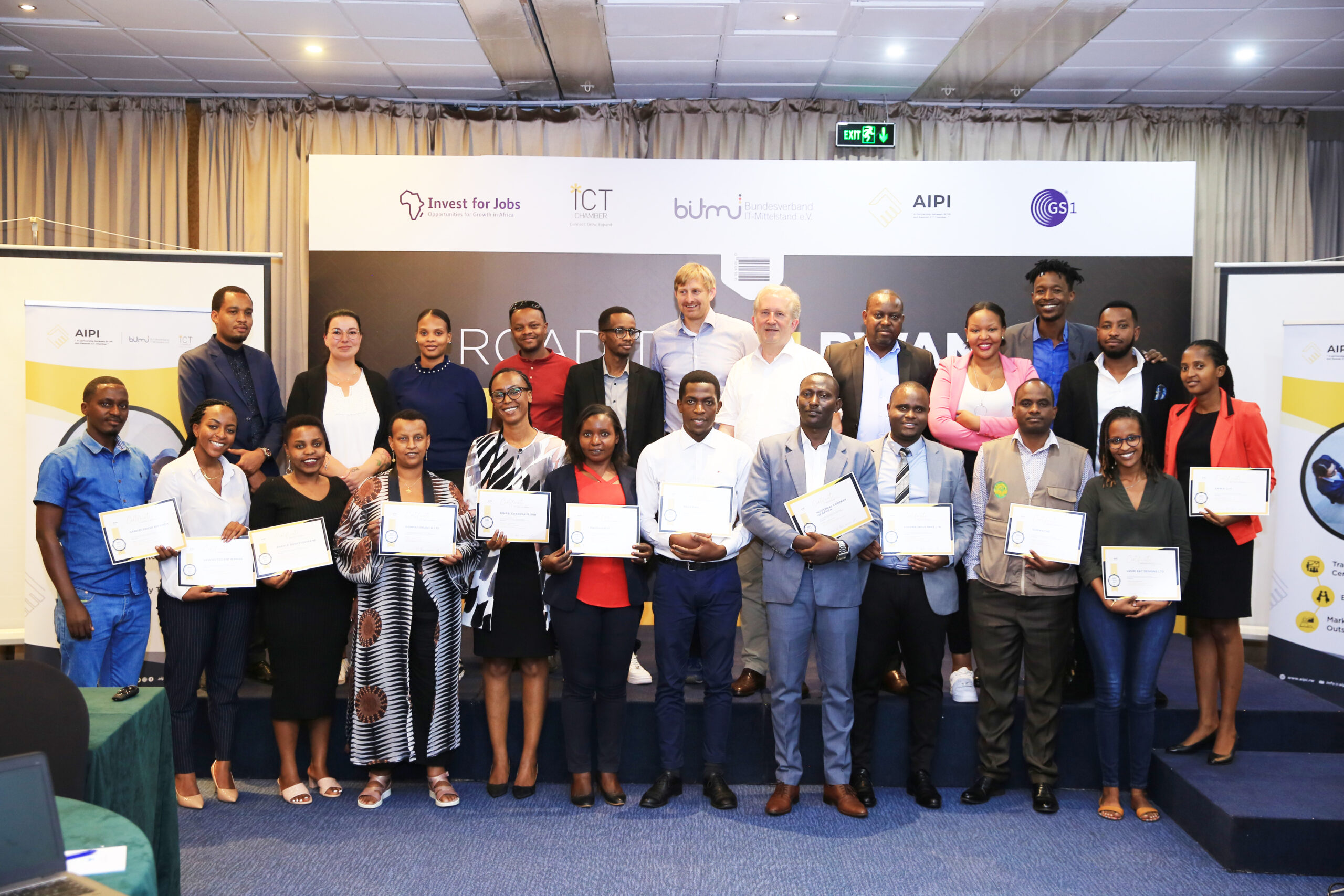
Introduction
ROAD TO GS1 RWANDA is an initiative proposed by AIPI (Access International Partnership in IT) the project of Rwanda ICT Chamber in partnership with the German IT based Association Bundesverband IT-Mittelstand e.V. (BITMi). The main goal of this project is to promote and implement GS1 standards in Rwanda and at the end set up the GS1 Rwanda as a GS1 Global Member Organization.
GS1 is a not-for-profit organization that plays a crucial role in developing and maintaining global standards for business communication. The barcode is one of the most recognizable standards they have established. It’s a symbol that’s printed on products and can be scanned electronically, making it easier to share accurate and consistent data worldwide.
This data tells the story of products, including information about their origin, contents, and more, that facilitate efficient and accurate information exchange across the supply chain. This standardization helps businesses enhance efficiency, traceability, and overall transparency in their operations.
For a nation to integrate itself into the cohesive GS1 Community, a consortium of companies within that country must collaboratively submit an application to GS1 Global. In the case of GS1 Rwanda, the governing board of GS1 Rwanda is tasked with the responsibility of ensuring equitable representation across vital sectors, including Manufacturers, Growers, Healthcare, Retail, Logistics, and ICT.
The major objective of this initiative is to create GS1 Rwanda. For Rwanda to have GS1 of its own, we are required to raise a big number of companies interested in applying for GS1 Rwanda. With the help of the AIPI team, the first step involves raising awareness and garnering interest among Rwandan companies about the benefits of applying for GS1 standards and to show them how these standards can improve their businesses and enable smoother interactions with global markets.
This could involve defining the application process, membership requirements, how companies can implement GS1 standards effectively, and how this initiative will easily enable Rwandan companies to tap into international markets. GS1 standards are recognized globally and using them can streamline trading processes, making it easier for Rwandan products to be accepted and understood in the international marketplace.
As a team, we make sure to clearly communicate the benefits of GS1 standards to potential beneficiaries, provide adequate support throughout the process, and collaborate closely with relevant stakeholders to ensure the successful establishment of GS1 Rwanda.
The initiative has involved a series of workshops and breakfast meetings with specific goals and outcomes related to gradually introducing GS1 standards and establishing GS1 in the country. The first Workshop focused on introducing participants to the general knowledge of GS1 and its standards. explaining the purpose and benefits of GS1 standards, how they are used globally, and their significance in business communication.
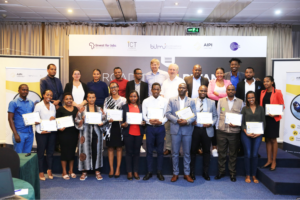
The second workshop was dedicated to forming task forces. These task forces were likely intended to be groups of individuals who would work on specific aspects of establishing GS1 Rwanda as a member organization of GS1 Global. This stage would involve planning and strategizing how to integrate GS1 standards into Rwanda’s business ecosystem and align with the global GS1 network.


The third workshop focused on presenting the results of the efforts made in the previous workshops and the subsequent work of the task forces. These results likely included tangible progress made towards establishing GS1 Rwanda as a member organization, such as creating a roadmap, defining roles and responsibilities, and setting up GS1. The outcomes of this workshop were used to prepare a draft application for becoming an official member organization of GS1 Global.
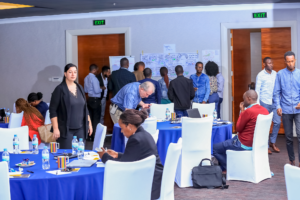
AIPI project, in collaboration with GS1 Germany Experts, is actively involved in supporting the establishment of GS1 Rwanda through workshops and events. This collaborative effort indicates a strong commitment to bringing the benefits of GS1 standards to Rwanda’s business community.
More than 150 companies have participated in the workshops and meetings. Some of the represented companies that participated include Inyange, Sorwathe, Magerwa, Kivu Noir, Pharmalab, and SawaCiti, etc. This diverse representation shows a broad range of involved industries, which is crucial for the successful application of GS1 standards across different sectors of Rwanda’s economy.

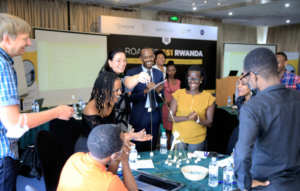
Apart from how exceptionally informative the three workshops were, there was another fun and engaging part of the workshops composed by skillfully blending challenges, interactive games, group discussions, and presentations with thoughtful questions/answers, which made the participants comprehend GS1 structure and goals.
GS1 is indeed the world’s largest distributor and developer of barcodes and various other standards that facilitate smoother interactions between businesses, suppliers, and customers. Larger supermarkets, major logistics companies, and prominent pharmaceutical manufacturers are among the many businesses that use GS1 standards.
GS1 standards play a big role in granting comprehensive control over products throughout the entirety of the value chain. Consider a simple example of a piece of wood destined for use in construction. These standards will offer a precise and consistent view of the product’s journey for various stakeholders, including the manufacturer, the logistics handler, the purchaser, and even the construction site.

Ann Christine Ishimwe, currently the head of sales and marketing at Kinazi Cassava Plant, is now the acting CEO of Barcode Initiative Rwanda. She recently elaborated on the benefits of being part of the GS1 initiative and emphasized that the GS1 initiative would not only enhance the credibility and visibility of Barcode Initiative Rwanda but also open up doors to new business opportunities on a global scale. She also highlighted how embracing GS1 standards would significantly enhance their ability to tap into the international market.
This level of detailed tracking and transparency underscores the transformative impact of GS1 standards, additionally with these standards, your products can easily be sold anywhere in the world. If successful, this initiative could be a game changer for Rwandan companies looking to expand their reach beyond national borders. The adoption of standardized systems would not only improve the efficiency of local operations but also boost the country’s economic integration with global markets.
